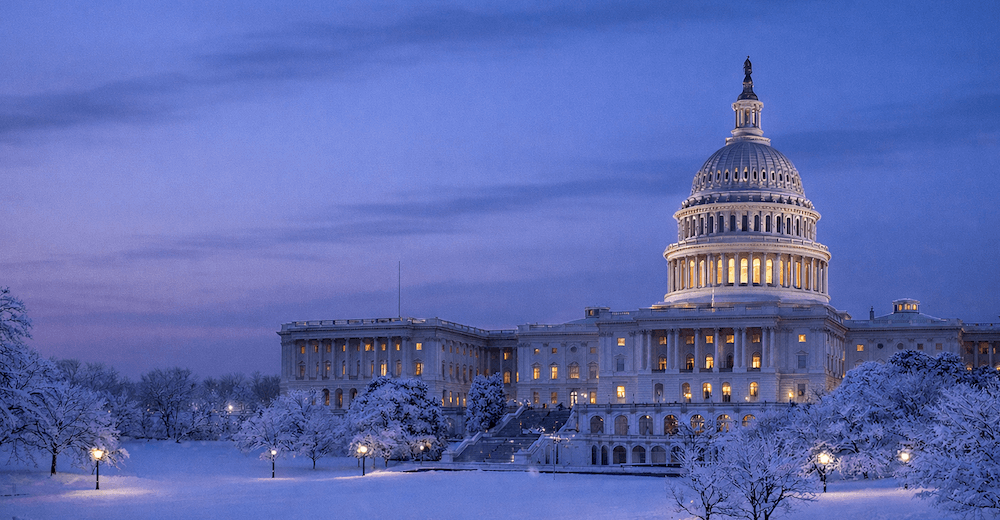
Posted May 03, 2024
By Matt Insley
Why Taxing Unrealized Gains is “Asinine”
In case you missed the Morning Reckoning with Sean Ring yesterday, I wanted to bring it to your attention.
Because Team Biden wants to flip the script on investors.
And it could have a massive impact on your future financial security… if all goes according to Biden’s plan.
Namely:“The Biden administration wants to apply capital gains tax to unrealized gains,” says Sean.
“First, let’s define what they want to tax,” he says. “Let’s say you buy a stock for $10. Over a few months, the stock price grows to $18. You now have an $8 capital gain, but it’s not realized.
“You haven’t sold the stock yet to realize the gain. Therefore, you have an $8 paper gain, also known as an unrealized or uncrystallized gain.
“Under the current tax system, you pay no tax on this unrealized $8 gain.
“Let’s say your stock later rises to $20. You’re thrilled as your stock has doubled. Now, you want to sell at $20.
“Since you bought the stock at $10 and sold it at $20, you realized a $10 capital gain. The IRS will kindly ask you to pay capital gains tax (CGT) on the $10 gain.”
“If you’ve held the stock for less than a year, it’ll be taxed as ordinary income,” Sean says. “If you’ve held the stock for over a year, it’ll be taxed at either 0%, 15%, or 20%.
“For the sake of this example, let’s say you’re in the upper tax bracket of 20%. That means you’ll pay $2 to the IRS because they said so.
“I don’t like CGT any more than I like any other taxes,” Sean emphasizes. “But at least in the current system, you have the cash to pay the tax…
Send your opinions to, feedback@newsyoucanacton.com
Your Rundown for Friday, May 3, 2024...
Capital Flight?
“What Bumbling Biden and his buffoons want to do is tax you on gains before you’ve sold the shares,” Sean continues. “It’s asinine.
“Let me show you.
“Going back to our example, let’s say on December 31, 2024, the stock price stood at $18 after you had bought it earlier in the year at $10.
“The IRS would want $1.60 from you (20% of the $8 gain). Since you didn’t sell the shares, I hope you have some spare cash around!
“Why would anyone even think it’s a good idea? No one does except the idiots in the West Wing.
“The only reason to consider it a good idea is [if] you’re into confiscation, theft, and thievery. Because that’s all this is.
“There are some excellent reasons to ensure your congressman never votes in favor of this stupidity…
- Violation of the Ability-to-Pay Principle: One of the fundamental principles of taxation is the ability-to-pay principle, which states that taxes should be levied according to a taxpayer’s ability to pay. Taxing unrealized gains violates this principle because the gain is not actual income until the asset is sold
- Potential for Double Taxation: Unrealized gains are often subject to double taxation. When the asset is eventually sold, the gain is taxed again as a realized gain. This double taxation is seen as unfair and punitive
- Disincentive to Invest: Taxing unrealized gains could discourage investment. The prospect of being taxed on profits that have yet to be realized might deter individuals from investing, which could have broader economic growth and development implications
- Market Volatility: Market volatility can make the value of investments move quickly. An asset might increase in value one year, leading to a tax on the unrealized gain, only to decrease in value the next year. This could result in individuals paying tax on gains that they ultimately do not realize
- Wealth vs. Income: There’s a fundamental difference between wealth and income. While income is a flow of money (like wages from a job), wealth is a stock of money (like the value of a house or stocks). Taxing unrealized gains is effectively a controversial and ethically fraught wealth tax.
“You may say this tax is a 25% annual minimum tax on unrealized capital gains for individuals with incomes and assets exceeding $100 million,” Sean says. “And that’s great because we should soak the rich… get them to pay their ‘fair share,’ whatever that is.
“But what if they take their money and run?” he wonders.
“We need as much capital as we can get. Capital is what separates the developed from the developing. Capital is the lifeblood of advanced civilization.
“I’m pretty sure this tax will never get past Congress, if only because every rich person owns at least one Congressman,” Sean snipes.
“But still, it’s a scary concept that needs to be known… and destroyed.”
There you have it, and well said!
Market Rundown for Friday, May 3, 2024
The S&P 500 is up 1.20% to 5,125.
Oil is down 0.60% to $78.50 for a barrel of WTI.
Gold is down 0.90% to $2,288.90 per ounce.
But Bitcoin is up 4% to $61,650.
Send your comments and questions to, feedback@newsyoucanacton.com

State of the Union Preview
Posted February 23, 2026
By Matt Insley

Elon: In A.I. We Trust
Posted February 20, 2026
By Matt Insley

War Unicorns: Adapt or Die
Posted February 18, 2026
By Matt Insley

Wall Street’s Secret Society
Posted February 16, 2026
By Matt Insley

Buck Sexton: Caracas Has Tehran’s Full Attention
Posted February 13, 2026
By Matt Insley
